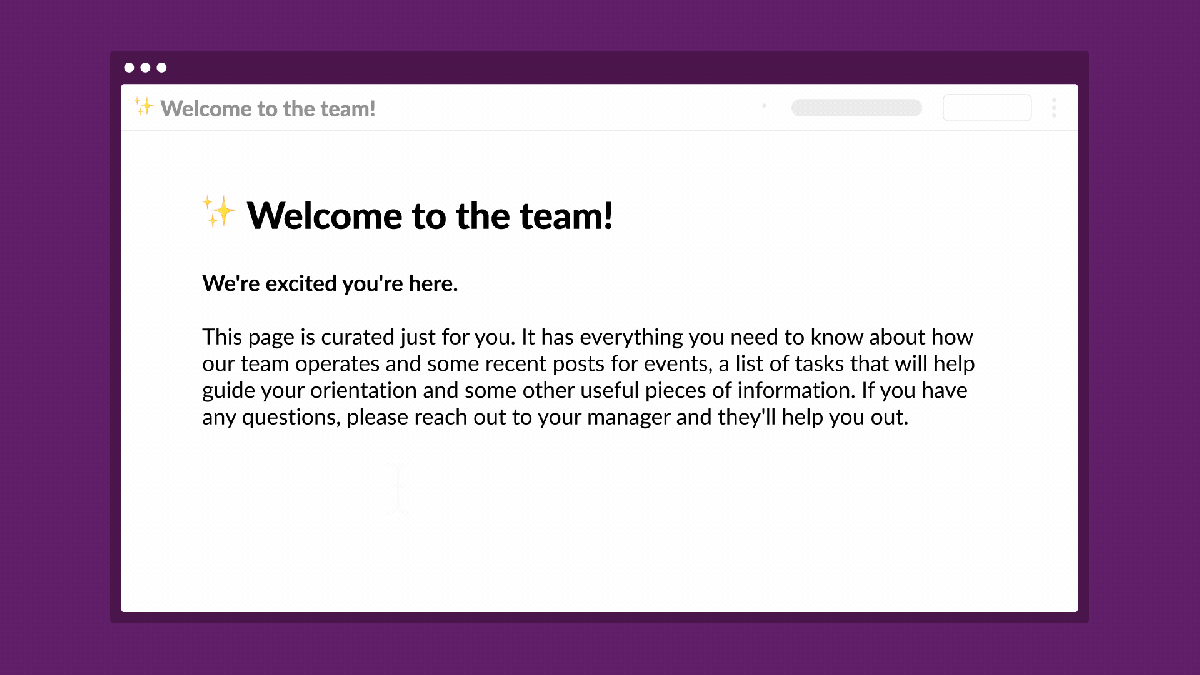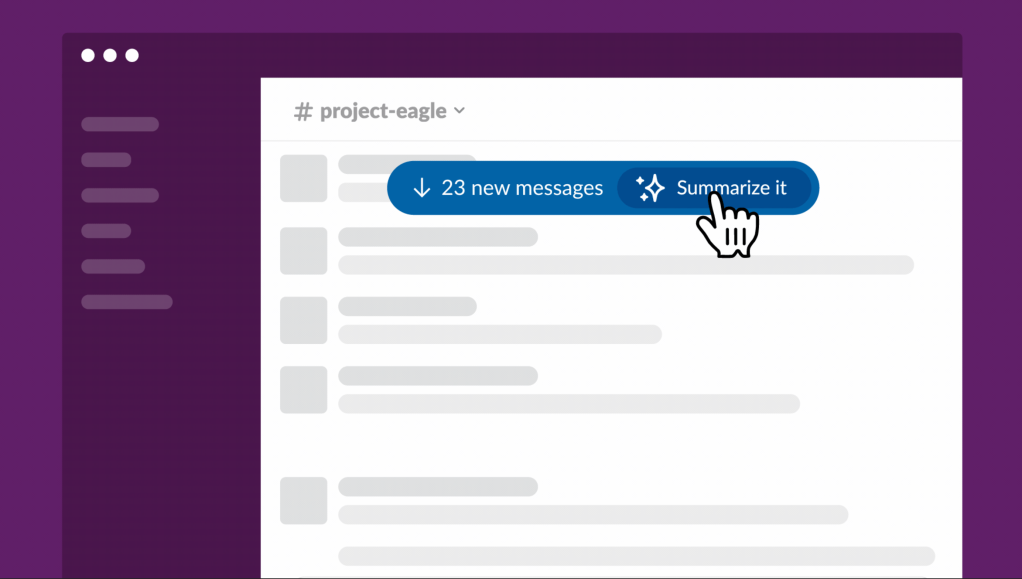Slack has become the latest developer to commit to integrating AI inside of its platform, with a new Slack GPT integration that will use chatbots as your own personal business assistants. But Slack GPT also highlights another AI quirk that may fly under the radar: its short-term attention span.
In March, Salesforce’s Slack division announced a ChatGPT app, allowing the OpenAI chatbot to be pulled into the Slack conversational interface. Now, Slack is expanding that: Slack GPT will support ChatGPT, the Claude chatbot, and Slack’s own eventual Einstein GPT chatbot as well.
Slack’s taking a simple approach. To avoid forcing users to scroll back through reams of chat text (say, after returning from vacation) Slack GPT will simply summarize it all for you. Slack’s vision involves using AI to “take notes” and summarize the next steps to take after a conversation. Slack’s Native Assisted Writing is also taking pages from Canva’s Magic Write and Microsoft’s Copilot and providing a way to draft an email to follow up with a client or sales lead — even automating the process when a new Salesforce CRM lead triggers a response.
That’s the future Slack sees for itself. Einstein GPT will be a sales-optimized AI, so that it be less focused on crafting original Seinfeld dialogue and more designed around closing a potential deal.
Salesforce / Slack
Slack is using AI for immediate action, though, which is what we’ve been using AI for, today. The problem is what Slack users may want AI to help with, though — and what it will be unable to do.
Don’t forget about AI’s short-term memory
AI’s weaknesses are more than just “hallucinations” of made-up data. Because of the immense computational complexity of AI interactions, most AI “conversations” eventually fizzle out. Bing, for example, caps conversations at 20 interactions before the conversation is “wiped” and the user must start over. ChatGPT has similar limitations, though they’re not as sharply defined. Eventually, however, the AI “forgets” some or all of what is being discussed.
That’s immensely annoying when Slack chats or Outlook emails quietly disappear because an organization doesn’t want to store an old email or chat because of cost or legal reasons. But it’s immediately obvious when an email disappears, because it simply vanishes. What an AI won’t tell you is the entirety of what it’s summarizing or providing advice upon.
The problem is that Slack can’t tell you either. “The range of interactions [Slack GPT] can access will vary by use case and what type of information is most appropriate to complete the task at hand,” Slack said in a statement provided by a company representative. “This is something we’ll be continually evaluating as we integrate generative AI natively into Slack.”

Salesforce / Slack
That may mean that Slack might be able to summarize months of chats, but it won’t be able to keep up the conversation about them without forgetting something that you told it a while ago. It’s like needing to remind colleagues again and again of what you previously agreed upon.
According to Slack, ChatGPT developer OpenAI’s API policy allows for a maximum retention of thirty days. That means that an AI conversation around a months-long project might only be “known” by ChatGPT for thirty days, max. Other app providers will have their own rules, Slack says, including Einstein GPT.
“We are still in early days building out our strategy for native generative AI,” Slack added. “As with any generative AI, best practice is providing targeted queries that yield higher quality answers, which is top of mind.”
It’s okay to be amazed at what AI can do. But as more and more companies start to build in AI into their software, we may rely on it more and more. The problem is that your memory goes back decades. AI doesn’t, and right now you can’t depend on it to do so.

